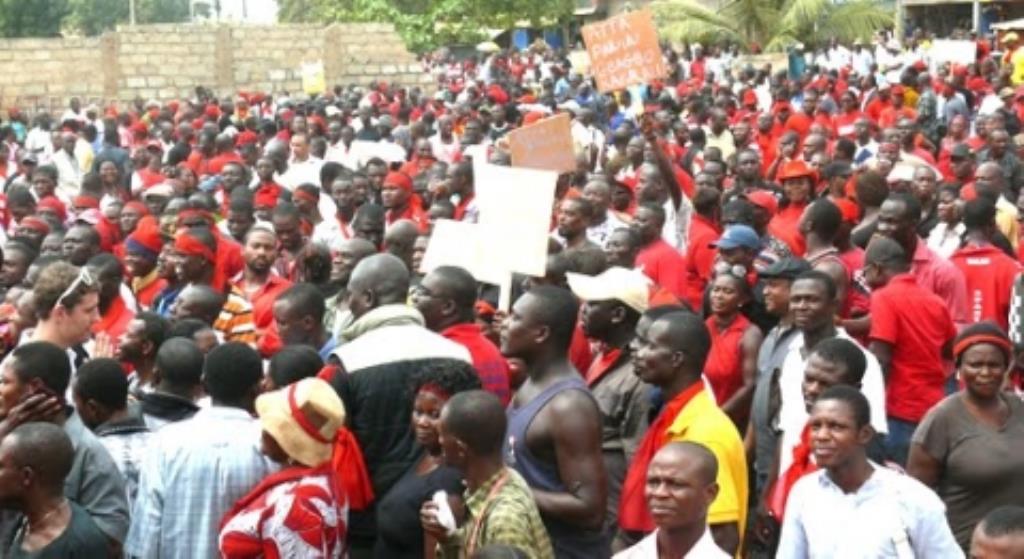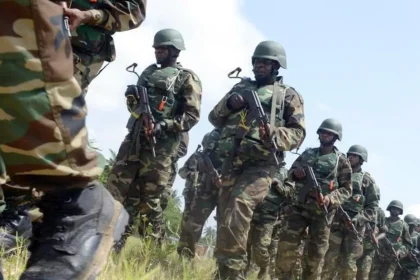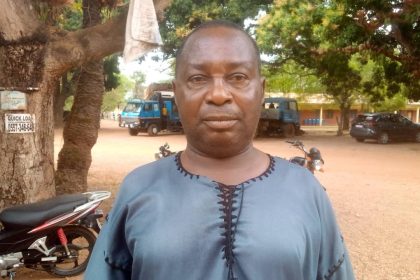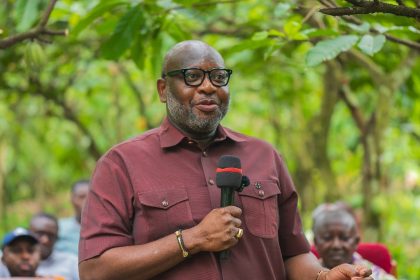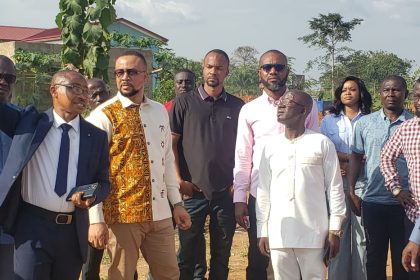The June 20 – 24 , 2011 summary publication on Elections, Violence and Conflict Prevention by the European Commission and the United Nations Development Programme defines Electoral violence as any random or organized act or threat to intimidate, physically harm, blackmail or abuse a political stakeholder in seeking to determine, delay or to otherwise influence an electoral process.
In most cases the youth are at the front line of electoral violence and this is a worrying situation.
Director of global affairs and partnerships at Search for Common Ground, a Washington-based non-governmental organization, Michael Jobbins said the youth are not a problem to be solved. He explained that many older people “talk about young people like they are a problem to be solved” or tell them to be patient as “the leaders of tomorrow. In fact, young people are the leader of today. And young people are voters and the majority of voters in Africa. It is wrong to think about preventing young people’s participation in violence without also encouraging young people’s participation in the elections process themselves in a constructive way”.
The international community has recently thrown its support behind this idea in the form of United Nations Security Council Resolution 2250 concerning youth, peace and security. The measure encourages countries to incorporate young people as partners in promoting peace and security and to give them a real say in how they are governed.
Ghana is considered a beacon of hope with regards to democracy and peaceful elections but in recent years, the country has seen pockets of electoral violence. Talensi, chereponi, Atiawa and Ayawaso West Wuogon by elections were marred with violence.
In December, 2019 the Center for Democratic Governance (CDD) – Ghana held a national dialogue on electoral violence. The objectives of the research were to gain in depth contextual understanding of electoral violence, political violence and political vigilantism. In her presentation, Ms. Mildred Edinam Adzraku explained that the main drivers and causes of electoral violence included the winner takes all system in the country, unemployment and poverty, politicization of chieftaincy disputes, mistrust for state institutions – Electoral Commission and Ghana Police Service and electoral malpractices.
The lack of confidence in the security agencies often makes politicians to resort to the vigilante groups for security. This lack of confidence in security agencies is fundamentally due to the powers given to the president by the 1992 constitution of Ghana. The president appoints the heads of security agencies like the IGP. Theoretically, the IGP has the power to crack the whip on acts of electoral violence that threaten the peace and stability of the state. But in practice its very difficult to apply the law. The culprits of the Ayawaso West Wuogon violence are yet to face the full rigors of the law.
In the recommendations, the CDD called for the political will by the authorities to enforce the laws without fear or favour, intensive public sensitization on vigilantism and related Offences law. The CDD also recommended building of the capacity of the youth to be peace ambassadors in hotpot communities and the need for the leadership of the New Patriotic Party (NPP) and the National Democratic Congress (NDC) to engage with constituency actors.
Children of politicians best recruits for vigilante groups not Zongos – Mustapha Hamid.
Speaking at a ceremony to present cheques to families of the 7 Muslim youth gunned down by the police in Ashanti region, the minister for Inner-Cities and Zongo Development, Dr. Mustapha Abdul- Hamid urged youth in Muslim dominated communities to focus on how to be useful to the entire nation rather than killing for persons he described as selfish politicians who will enjoy with their families in peace after they have used them [Zongo youth] to achieve the needed results. He added that “when politicians or individuals come to you to lead or be part of vigilante groups to cause confusion, tell that person to either bring his/her daughter or son to join. Their daughters and sons are not above you. They have to join if vigilantism is a good thing”.
We need awareness like to make the youth conscious of their role in the development of our nation and the comment from the minister of state is very positive.
Young people must understand that to engage in electoral violence is to risk your dignity and self-worth for some politician’s greed. Death, injuries, disability, imprisonment just to mention a few are some of the possible danger one may encounter as they choose to engage in electoral violence.
Youth are not only associated with violence when it comes to politics and governance. In Ghana today, political parties have made significant progress in youth involvement.
Some of the youth in the two main political parties in Ghana have had issues with sections of the public, media and even some elderly party members. The term “Babies with sharp teeth” is a tag that was associated with some young politicians.
Many of the young politicians are becoming a force to reckon with. Their well-researched and detailed analysis on national issues is impressive but this is not to say there are no elements within who do not live up to expectation. Even for the ones that are good, they do not miss the least opportunity to play ‘propaganda’.
Like him or not Sammy Gyamfi is taking the NDC communication to another level. The young lawyer who about a year ago was elected National Communication Officer of NDC has served his party in various positions from the grassroot to his current national level. His party is very confident in his ability to communicate effectively and he has adopted some unconventional style to address the media on some national issues.
The World Economic Forum in March, 2020 named Ghana’s Information Minister as a Young Global Leader. Kojo Oppong Nkrumah brings his media background to bare in his current role to communicate the government policies and programmes. He is one politician that is loved by many young people with different political affiliations. He is a lawyer and a member of parliament. He has used to role as MP to provide scholarship to many students in his constituency and beyond.
These young politicians should serve as an inspiration to Ghanaian youth to strive to serve the nation with pride. This should not only be in politics but in business and so. In this election year, the youth should say no to electoral violence. Arise Ghana for your country, the nation demands your devotion in helping to build our motherland.


